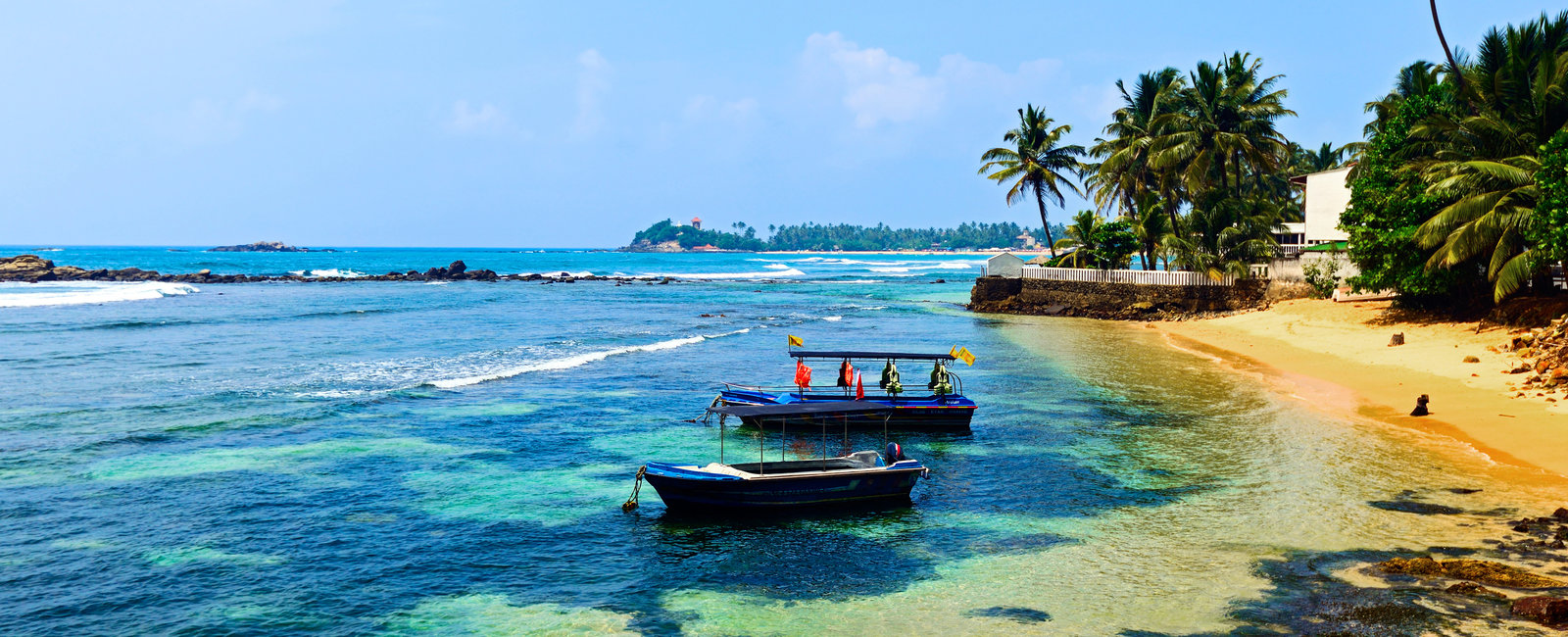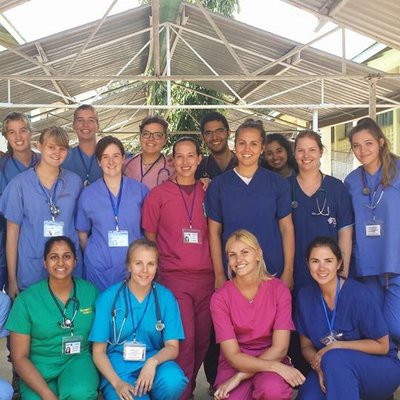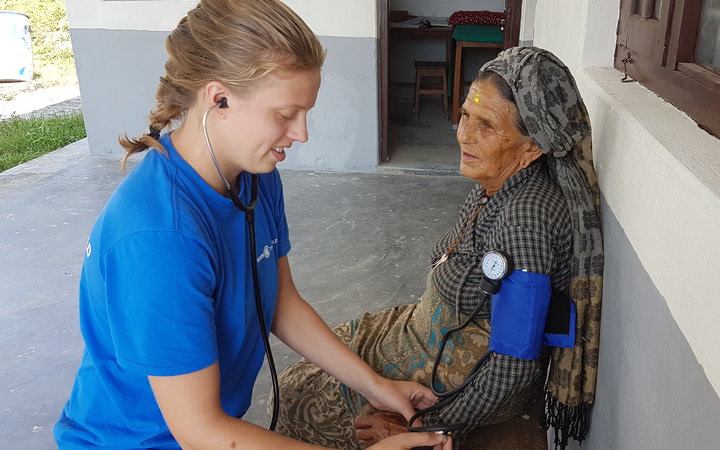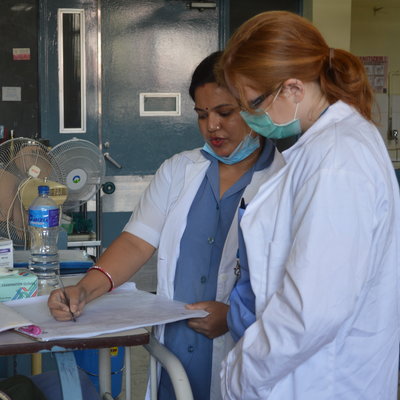Putting yourself in the midst of an unfamiliar country and learning from the ground up is one of the best things you can do for yourself and your future in healthcare.
Here's why:
1. It LOOKS GREAT ON YOUR CV
Nothing says ‘employ me’ like a CV brimming with overseas experience in your specific field. Potential employers will see you’ve willingly put yourself in an environment where the rate you’ll learn and gain experience far exceeds that of staying in a familiar healthcare system. They’ll be thinking ‘resourceful, resilient, and determined’ without you having to shout the buzzwords yourself.
A study undertaken in 2013 shows that “[...] graduates who studied abroad as part of their degree are 24 percentage points more likely to find employment 3 years following graduation relative to their non-mobile peers.” (Di Pietro 2013).
That’s a statistic worth considering.
John Hansen Brevetti travelled with us to Tanzania, he now works with a global health charity in Southern Africa. This is what he has to say on the matter:
“A placement abroad stands out on your CV as a badge of durability, resourcefulness, and cross-cultural aptitude. It says you’ve solved problems and debated ethics that are simply taken for granted at home. It says that you've earned something few others have. Work the World prepare you in innumerable ways to be a better clinician and a better citizen of our planet - employers know this." - John Hansen Brevetti
We also asked Troy Peden, the founder and CEO of a successful overseas program directory, on his thoughts:
"Working, interning or volunteering abroad are great for the resume and can often provide practical experiences that may not be available at home. In the field of medicine and health sciences working abroad may offer the traveler public health topics that are not often issues at home, the opportunity to develop intercultural communication skills and dealing with new and unique challenges. Future employers can see that you are flexible, motivated and dedicated to a greater good.
The biggest value however is the personal transformation that most travelers experience, the connection to locals, the relationship to the culture and the people that lasts a lifetime and the realization of what you are capable of and what you want your direction to be.”
2. MAKE LIFELONG FRIENDS AND INTERNATIONAL CONTACTS
You’re going to meet a whole host of characters if you decide to travel overseas for your placement, from the people you’ll live with to the staff that surround you in hospitals and clinics. Meeting people in an unfamiliar place and sharing the experience together forms a unique kind of friendship. The memories you’ll make - and the friendships that created them - genuinely last a lifetime.
Past traveller Tamalee stayed in the World the World house in Tanzania:
"During my time in Tanzania, I lived in a house with 10-15 other students from Canada, USA, U.K, Europe, and Australia. We all lived together, ate together, and went to our hospital placements together. Something I wasn’t prepared for before arriving in Tanzania was just how many friends I would make from all over the world and what I could learn from them about their own health care systems, instead of just Tanzania’s. I not only got to experience health care in a developing country, but I got to learn what it is like in a range of many other developed countries." - Tamalee Henson
What’s more, if you all travel with Work the World, these new friends are likely to be similarly minded healthcare students and professionals, meaning they'll double up as invaluable international contacts. You'll be building the foundations of a global network whose expertise and advice might well help shape your career.
Sharing the skills and knowledge from your differing cultures will also allow you to pick up techniques that will help better you professionally, keeping you open minded and enabling you to better interact with patients from different cultures. Upon returning to Leeds from her midwifery placement in Ghana, qualified midwife Nada Majid told us she was able to make the Ghanaian women there feel more comfortable when in labour, especially if they had previously experienced labour in Ghana.
3. SHIFT YOUR PERSPECTIVE
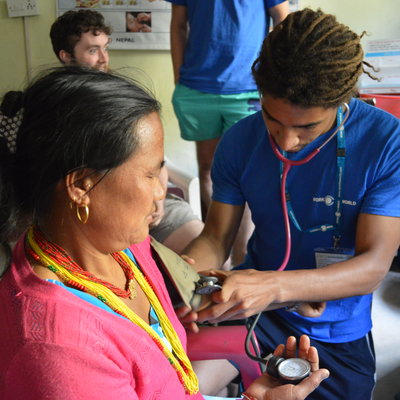
Seeing the way other countries provide care will change the way you view your own practices and healthcare system. You’ll develop a new empathy for cultures that have considerably less resources, and - if you choose to stay in a rural village - get exposure to holistic, herbal, and historical healthcare. Embracing your host culture’s values and traditions – especially on a clinical level – will lead you to evaluate your own beliefs, and develop as a result.
Here's what medical student Edward had to say on his overseas experience:
"There are a lot of reasons to choose any particular elective experience – for me, in coming from a country with a first class healthcare system, I was interested in immersing myself in a new and unfamiliar community, embracing the ‘culture shock’, to observe, learn and contribute however I could... Sri Lanka, for its part, presented the opportunity for a different kind of cultural and educational immersion, with the added temptation of travel and adventure at your doorstep." - Edward Spraggon
It goes without saying that you'll also get exposure to a range of diseases uncommon in your own country:
"2 weeks in Paeds, 2 weeks in Gen Med & 2 weeks in the labour wards - each was better than the 2 weeks before. In going overseas you see so many things you don't get to at home with clinical signs straight out of the textbook." - Ashlee Burgess
4. LEARN THE BASICS OF A NEW LANGUAGE
[Our Nepalese language teacher talks through disease translations]
It’s no surprise that learning a new language keeps your brain healthy. It’s also attractive to employers, and let’s be honest – it’s just plain impressive.
Getting to grips with the basics of the local language will allow you to engage with patients from the country you’re working in on a much more personal level. It’ll also earn you the respect of local healthcare professionals, and open doors to more opportunity while on placement. [Note that we provide weekly language lessons in our houses which are geared towards preparing you for your clinical experience].
Nursing student Samantha traveled to Dar es Salaam and tried her hand at Swahili:
“Learning Swahili really did help; the doctors and nurses really appreciate it when you make the effort to speak their language. Ask questions and be active in all that is going on around you.” - Samantha Scoggin
6. GROW AS A PERSON
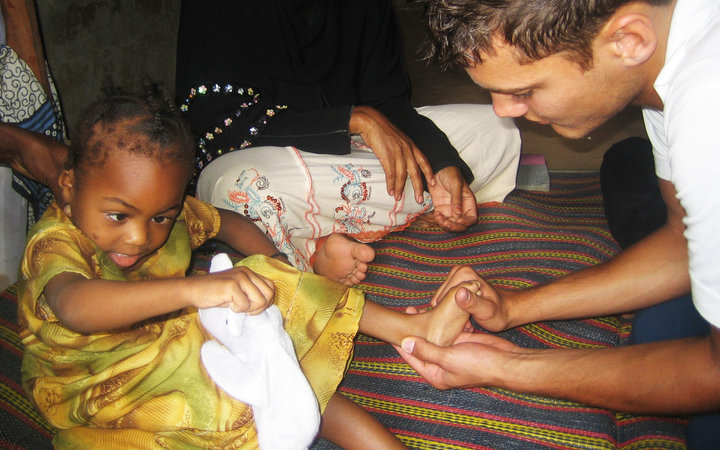
If you choose to take your placement abroad, you’re going to learn a lot, and you’re going to learn a lot quickly. If you’re working in a low resource setting, you’ll pick up resilience from local staff who experience hardship as the norm.
Your self-confidence will be continually boosted by challenging experiences, tangibly growing communication skills, and a confidence boost.
"A clinical placement overseas can be a life-changing experience. It can make you reflect on what kind of professional you want to become. Seeing things on the TV, in books or on the internet is incomparable to experiencing it in person. It provides you with perspective on your profession." - Adrienne Day
7. SEE THE WORLD
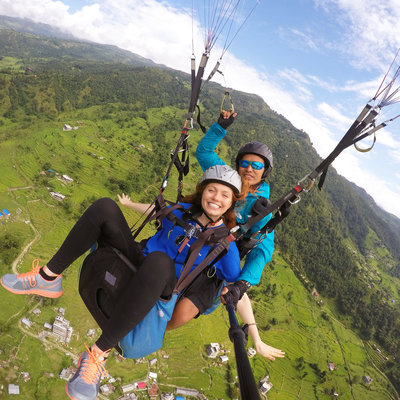
Where’s the sense in heading to an exciting destination if you’re not going to explore it? Whether it’s trekking through the misty Himalayan Mountain range in Nepal, or exploring the Maasai markets in Tanzania, there are endless opportunities for adventure whatever type of traveller you are.
Many students and professionals who have travelled with us have dedicated the weeks before or after their placement to travel. People like medical student Natasha, for example:
"During my elective in The Philippines I went on some great weekend trips. There were so many highlights. I snorkelled with huge sea turtles, swam with whale sharks and kayaked with fireflies. I scuba-dived for the first time, visited magical waterfalls, and so much more." - Natasha Smith
Read more about our healthcare placements abroad.
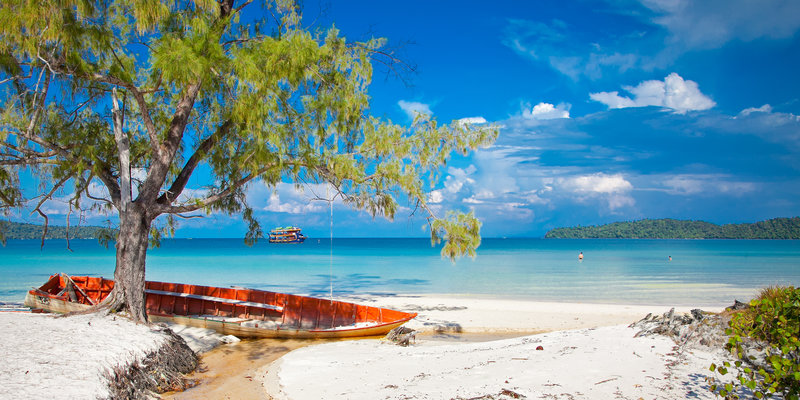
DESTINATIONS
AFRICA, ASIA
From relaxing on paradise beaches to trekking through the Himalayan Mountains, find your dream destination here.
From relaxing on paradise beaches to trekking through the Himalayan Mountains, find your dream destination here.
